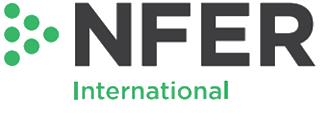Supporting CDC to assess the impact of their investments on education systems around the world
NFER developed an impact framework for CDC to carry out pre-investment screening and management of its education portfolio.
In 2018, NFER worked with CDC, the UK’s Development Finance Institution, to assist it in the selection of investments that improve national education systems. We worked closely with CDC in designing an evidence-based, impact framework to be applied when carrying out pre-investment screening of projects and post-investment portfolio management. The framework allows CDC to assess the impact of its investments on equitable access to education, helping it to identify ways to maximise its positive impact and mitigate any potential negative impacts.
 Methodology
Methodology
The framework was developed utilising three approaches:
- Research and analysis of existing evidence on the positive and negative impacts of private investment into education in Low and Middle Income Countries, with a special focus in African and South Asian countries
- Two Focus Group Discussions with NFER international education specialists and CDC members
- Stakeholder interviews with 25 organisations and individuals working in the education sector in countries across Africa and South Asia, including Sierra Leone, Uganda, India and Nepal.
The stakeholders were drawn from across the education sector in LMICs; for-profit and not-for-profit providers of primary and secondary education, private providers of higher education and vocational training, EdTech and publishing companies, NGOs, international multilateral agencies, governments, and investors.
In the interviews we gathered insights on a set of impact categories identified through our analysis of the existing evidence. Despite their different contexts and roles, there were some widely held views. For example, the emphasis they placed on the quality of learning as the cornerstone of any assessment of private providers, the relevance of teaching 21st century skills, the importance of safe school environments and giving voice to students.
Results
In the impact framework, private education providers are assessed by examining their impact across several dimensions, at both the individual student and education system level, such as learning, access, well-being and accountability.
Across these dimensions, we identified a longer list of categories in which evaluation is recommended, with suggested indicators and data sources, tailored for each type of provider; core pre-primary, primary and secondary education, higher education and TVET, teacher training, EdTech and publishing. For example when assessing a provider’s approach to ‘access’ we recommended that three key categories are considered: expansion of the reach of their education services, the affordability of their services for their target population, and how they address the exclusion of marginalised students.
CDC is now using the framework to assess the impact of its education investments.
For more information on CDC’s framework please see Maximising the impact of education investments
